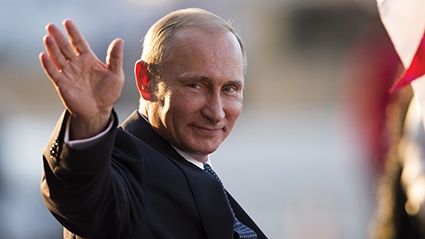Russia Kisses Syria Goodbye. Mission Accomplished?
On March 14 President Putin announced that Russian military forces were to withdraw from Syria. This came as surprising news for many political pundits, journalists and politicians.
Russia will still maintain its capacity from the Khmeimim airbase, southeast of Latakia, and from its long-standing naval base in Tartus. Putin pledged to protect these two bases from sea, land and air, saying that he considers “the objectives that were set for the Defense Ministry to be generally accomplished.” But does that mean that it is now time for diplomacy to kick in? And what does this move mean?
Russian forces entered Syria and began airstrikes in the fight against the Islamic State terrorist organization (ISIS), however, many saw it as a cover up, the real reason being to stabilize and support the regime of Bashar Al-Assad. This move raised the stakes in Russian-American relations, reaching a peak when Turkish forces downed a Russian military plane. It’s also diverted the attention of the West from Russian actions in the West and opened a path for closer cooperation between Moscow and Washington.
In a way Putin can claim victory in Syria. He wasn’t bogged down in this Middle Eastern conflict, unlike the US which fought wars both in Afghanistan and Iraq. The Assad regime is more stable than it was even a year ago. More importantly, Russia made the Syrian opposition accept a ceasefire that started February 27th and gained Russia a position at the negotiating table. Even the US had to step back from its original position that there would be no peace talks until Assad quit.
It’s been a win-win situation. Assad is not able to gain more territory without Russian support, thus he will be more inclined to negotiate with the armed opposition. Russian withdrawal will also prevent a military clash with Turkey.
Either way, it’s good news for the people of Syria if the negotiating process continues and if all sides try to find a compromise. And it’s very good news for Russia, because they accomplished their main goal in making the West recognize them as a vital player at the world’s negotiation table.
Mary Kalan












